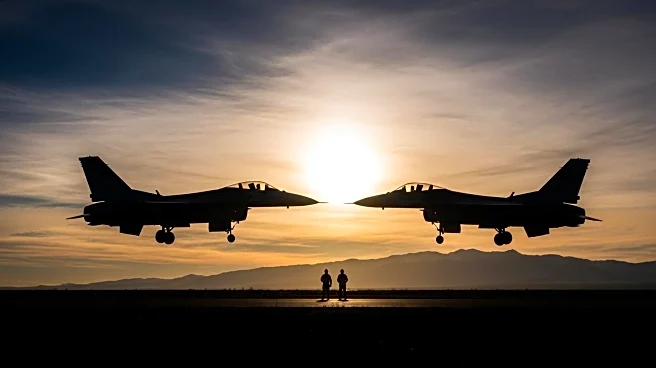What's Happening?
President Trump has expressed disappointment in Russian President Vladimir Putin following a series of provocative actions by Russia, including the flight of Russian bombers and fighter jets near Alaska. This incident occurred nearly six weeks after a summit between Trump and Putin in Alaska. The U.S. responded by intercepting the Russian aircraft with F-16 fighter jets. Trump, who recently met with Ukrainian President Volodymyr Zelensky, has shifted his stance, now supporting Ukraine's efforts to reclaim its territory from Russia. This marks a significant change from his previous position advocating for Ukraine to make territorial concessions.
Why It's Important?
The interception of Russian jets near Alaska highlights ongoing tensions between the U.S. and Russia, testing America's defense systems. Trump's recent rhetoric suggests a hardening U.S. stance against Russian aggression, potentially impacting U.S.-Russia relations and NATO's defense posture. This shift could influence U.S. foreign policy, particularly regarding military support for Ukraine. The situation underscores the geopolitical complexities of the Russia-Ukraine conflict and the U.S.'s role in supporting Ukraine while managing relations with Russia.
What's Next?
The U.S. may continue to bolster its defense readiness in response to Russian provocations. Trump's support for Ukraine could lead to increased military aid and diplomatic backing, potentially escalating tensions with Russia. NATO allies may also face pressure to respond to Russian incursions into their airspace. The evolving U.S. stance could influence international diplomatic efforts to resolve the conflict in Ukraine.









